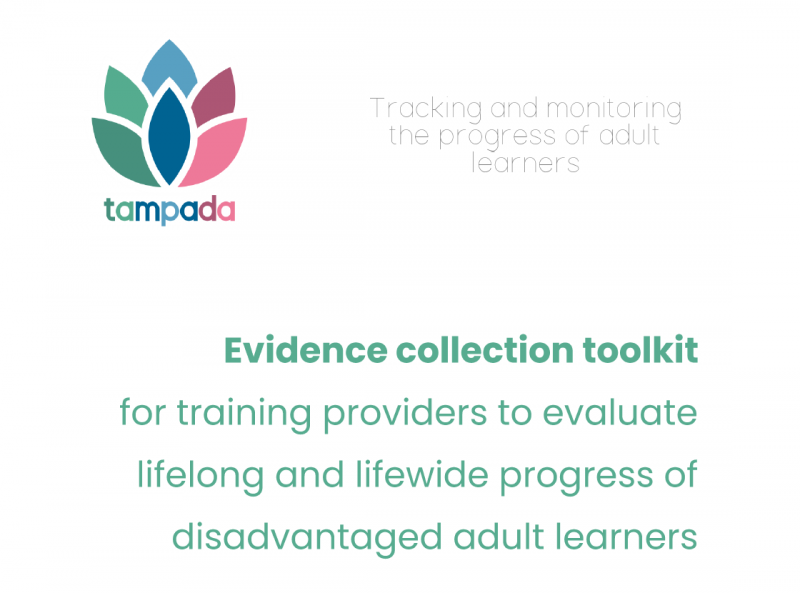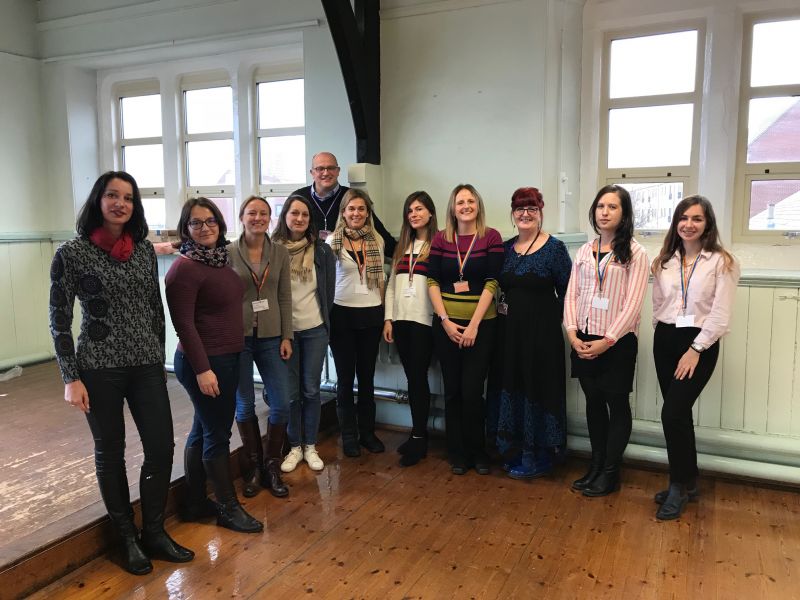
Watch the conference recording video below
The introduction was followed by a presentation by Pauline, Project and Policy coordinator at LLLP, of the main Tampada project results (download her presentation). In her presentation, she outlined why there is a need for better monitoring and assessment of wider benefits of learning in adult education focusing on the European context. She raised the challenge that even though awareness on those benefits is increasing, initiatives to systematically measure them remain scare, fragmented, time-bounded and overall, insufficiently spread.
The main results from Tampada are the publication of an “Evidence collection toolkit and framework for tracking and monitoring the progress of disadvantaged learners”, which defines AE outcomes under 4 areas: Development of self and life skills, Health and wellbeing, Employability, employment and learning, and Social, community and citizenship. The Toolkit also includes a 6-steps methodology that adult learning providers can follow to measure learners’ lifelong and lifewide progress.
This Toolkit has been transformed in a user-friendly digital assessment tool that AEPs and educators can use to measure their learners’ progress. Stakeholders interested in using the tool can express their interest here in a Google Form.
The project presentation was followed by a panel discussion involving a researcher from the Free University of Brussels (VUB and Chair of adult education at Unesco), a representative of adult education in Belgium-Flanders, as well as a policy-maker from the European Commission (Adult learning unit at DG EMPL). Maurice De Greef presented impressive research studies and their results (download presentation) on measuring adult learning outcomes.
Karine Nicolay presented the project of the national coordinator in Flanders for the European Agenda of Adult Learning (Lang Leven Leren) and the Erasmus+ project GOAL (Guidance and Orientation for Adult Learners) and she emphasised as well the importance of open recognition (download presentation). Finally, Martina Ni Cheallaigh shared some European policy achievements, for instance with the Upskilling pathways Recommendation. She also mentioned a few other important EU policies such as the 2020 publication of the European Skills Agenda as well as the upcoming promising revision of the EU agenda of adult learning this year by the Slovenian Presidency of the EU (2nd semester of 2021).






